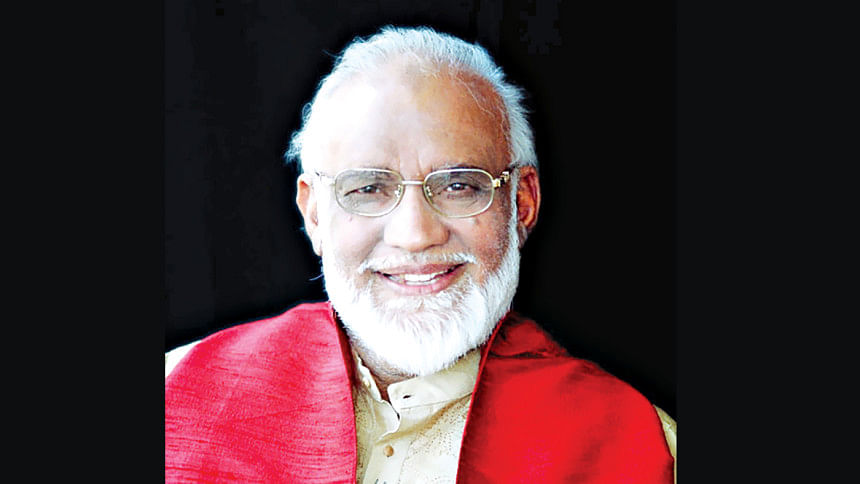A guardian of Bangladesh’s folk music

In the quiet hours of early Saturday morning, Bangladesh bid farewell to one of its most cherished cultural figures. Mustafa Zaman Abbasi—eminent musicologist, author, singer, and television personality—passed away at the age of 87 at a hospital in Banani.
His daughter, Sharmin Abbasi, confirmed the news, marking the end of a luminous life steeped in melody, memory, and an unwavering devotion to Bengal's cultural arena.
Abbasi had long been battling age-related complications and was admitted to the hospital on Friday after experiencing severe breathing difficulties. Just before dawn, at 5:30 am, his resonant voice—one that had carried the spirit of Bengali folk music across borders and generations—fell silent.
He was laid to rest later that day at Dhaka's Azimpur graveyard, beside his parents—his father, the legendary folk music pioneer Abbasuddin Ahmed, and his mother, Lutfunnesa Abbas.
A tireless researcher and collector, Abbasi devoted his life to safeguarding over 2,000 traditional folk songs—captured not from scripts but from mouths weathered by time and toil. His Dhaka home became a sanctuary for Baul singers from Kushtia, whose sacred songs, once fading in obscurity, found a second life through his efforts. He was the first to document and broadcast the original melodies of Lalon's works, opening a path for spiritual folk music to reach new audiences.
Abbasi's influence transcended performance. He served as Director General of the Bangladesh Shilpakala Academy, wrote more than 21 books, and represented the country at numerous international forums. His anthologies—"History of Folk Music", "The Birthplace of Bhawaiya"—remain cornerstones in cultural research. Yet, despite accolades and acclaim, he stayed rooted. He valued a handwritten letter from a village admirer as deeply as an academic award.
His funeral, held at the Gulshan Azad Mosque, was attended by family, admirers, and fellow artists. Among the tributes, Professor Muhammad Yunus described Abbasi as a light in the cultural firmament whose work would continue to inspire.
Indeed, Mustafa Zaman Abbasi leaves behind more than memory—he leaves a map. A bridge between generations, a steward of tradition, his legacy will echo in the strains of folk songs sung by riverbanks, in archives preserved with care, and in the hearts of all who still believe in the quiet power of melody.

 For all latest news, follow The Daily Star's Google News channel.
For all latest news, follow The Daily Star's Google News channel. 



Comments